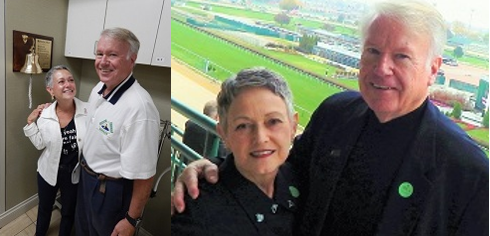On our journeys at AdventureWomen, our guests truly bond with one another. The connections between women travelers are powerful and long-lasting. This community of like-minded travelers has allowed us to learn from each other and take away kernels of valuable insights. This month, we share 3 stories from breast cancer survivors which remind us of why we need to stay vigilant, individually and together, to protect ourselves from this disease.
Lesson #1: Never Doubt the Power of Your Intuition
Listen to professional dancer, Olivia Hutcherson, who at 26, trusted her intuition that something was wrong and was finally able to convince her doctors to give her first one then two more mammograms which ultimately led to her diagnosis of ductal carcinoma in situ (DCIS), a form of non-invasive breast cancer which hasn’t spread beyond the milk duct into surrounding breast tissue.
Lesson #2: Self-Advocate and Do Your Own Research
Breast cancer survivor, Julia Musall, was lucky enough to have a technician to thank for scanning both breasts (against her doctor’s directive to scan only one breast):
I was 28 when they first discovered a lump in my left breast. I was referred to a surgeon who did nothing but say to me “You’re too young to have breast cancer”. About 4 years later, doing a self-breast exam I had a bloody discharge from my right breast. Saw the surgeon, he again didn’t think much about it. I projected my concerns. So, he tested the bloody discharge. It was positive. He was shocked and immediately referred me for surgery. A biopsy showed negative for cancer. I was to follow up in one year.
A year past and I thought, “Well no need to go back in, the doctor wasn’t concerned and the biopsy was negative”. Six months later, I thought, “Gee, I hadn’t done a self-breast exam.” Clear liquid shot out of the left breast. Fear hit me right in the face. I immediately went in. The doctor only ordered a mammogram for the right side. Thankfully, the technician did a bilateral. The next day I received a call back because the left breast showed microcalcifications. Went back in for repeat. Received a call that a biopsy was needed. The diagnosis was breast cancer.
It was initially thought DCIS. A patient advocate met with me. She told me not to rush into anything because DCIS was not known to be invasive. Well, glad I didn’t listen to her. Surgery was scheduled immediately. I had extensive DCIS that protruded into the breast tissue, I had microcalcifications throughout the breast, and that lump that was nothing years prior, was now a Grade 1 tumor. God had plans for me and dying wasn’t one of them. My only option was complete mastectomy. The tumor board also recommended bilateral mastectomies. One was enough to deal with. But, after many years of problems with the right, and losing over half the breast, I finally had the right mastectomy.
My suggestion to newly diagnosed patients. Be positive. Research your diagnosis. Don’t try to hide it. And it’s okay to cry.
Lesson #3: Stay Active & Build a Team

Vicky Scherberger and her husband Richard
Cancer survivor, Vicky Scherberger, 64, of Madison, Alabama credits staying active and leveraging the multi-faceted support of a diverse team of friends and professionals with her ability to retain her positive outlook before, during and after treatment for breast cancer:
Scherberger’s commitment to physical activity began during chemotherapy — though she admits this was not Plan A. “A friend emailed and told me to keep moving during chemo in order to feel better,” she recalls with amusement. “At the time, I’d just had my first treatment, and I was in bed — ready to watch Property Brothers all day. In my head, I called that friend a not-very-nice name!” But she soon found that staying physically engaged during chemo helped her to feel more in control.
To meet her goal of remaining not only cancer-free but in good overall health, she sees a holistic team of specialists that her husband helped put together, including her surgeon, plastic surgeon, oncologist, Christian counselor, nutritionist, physical therapist, and primary care physician.
Scherberger is an active member of the online community at Breastcancer.org. “If it weren’t for that group,” she says, “I would not be an informed patient. As things are, I share information with my oncologist. Like, I’m a big gardener. I learned that there are studies that show vegetable gardening can be especially good for people who’ve had cancer.”

